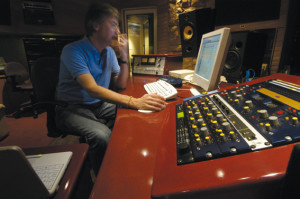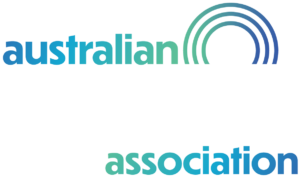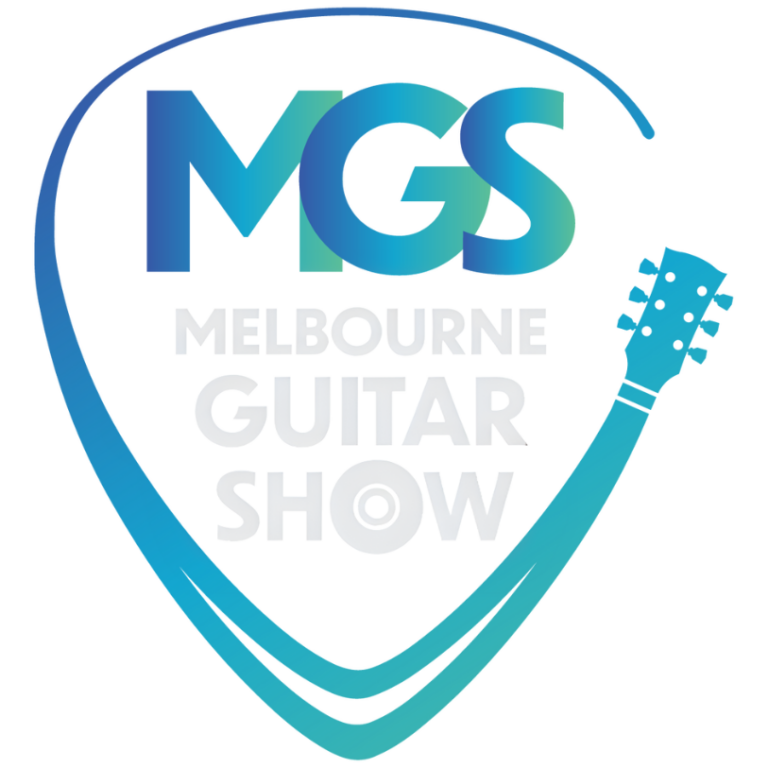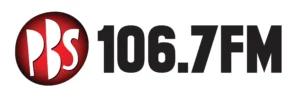MASTERING! WHAT IS IT?
August 18, 2005 | Author: Kevin Garant
 Respected studio engineer Martin Pullan has been at the helm at Melbourne’s Edensound since its inception during the mid nineties. English born Pullan cut his teeth at the esteemed RG Jones Recording Studios in London where he worked with artists as diverse as Leo Sayer, Selina Jones and the Nolans. Since arriving in Australia he has enjoyed great success with projects by The Black Sorrows, Things of Stone & Wood, T Bone Burnett, LRB and Split Enz. He also knows a thing or two about mastering having recently mastered albums by Marcia Hines and Living Loud. Australian Musician contributor Kevin Garant sat down with Martin to demystify the mastering process.
Respected studio engineer Martin Pullan has been at the helm at Melbourne’s Edensound since its inception during the mid nineties. English born Pullan cut his teeth at the esteemed RG Jones Recording Studios in London where he worked with artists as diverse as Leo Sayer, Selina Jones and the Nolans. Since arriving in Australia he has enjoyed great success with projects by The Black Sorrows, Things of Stone & Wood, T Bone Burnett, LRB and Split Enz. He also knows a thing or two about mastering having recently mastered albums by Marcia Hines and Living Loud. Australian Musician contributor Kevin Garant sat down with Martin to demystify the mastering process.
KG: So what is Mastering?
MP: Mastering is the final part of the creative process of making a record. it’s where you get to look at the project as a whole instead of the individual parts, an opportunity to improve the overall sound and make the individual tracks sound consistent – like they belong on the same album.
Is there a difference between mastering studio that charges $25 an hour and one that charges over $400 an hour?
There are many differences, firstly the room. It’s very important to be making these crucial final adjustments in a room that has been properly designed, so there are no inherent frequency issues. Secondly, there’s the equipment. Most budget mastering houses do all or most of their processing using plug-ins or cheap equipment. It’s much more difficult to get maximum level while still retaining apparent dynamics this way. And finally you don’t tend to get a very experienced engineer with the lower rates.
Your background is recording and mixing engineer, making records such as The Black Sorrows “Hold on to Me” you are also a songwriter and musician… Do you think this helps in Mastering?
I think it’s good for all of us at least to have knowledge of the other parts of the process. I reckon mixing engineers would improve their mixing skills if they did mastering for a few months and vice versa. Being musical helps for sure, particularly when editing, but I know great sound engineers that don’t play anything, just have a natural musicality. I find personally that having been into recording and mixing is good, particularly these days as mastering is including more and more mixing. Clients are bringing in “stems” a lot, these are components of mixes. The reasons for this are, first of all to give some greater flexibility during mastering, as more and more mixes are being done in the home studio environment, engineers are wanting to leave some crucial mix decisions for the better acoustic space of the professional mastering room. The other reason is so these stems can be “mixed” in an analogue summing amplifier, to avoid the undesirable effect of digital summing in the software mixer.
What do you use to do this summing?
I’ve recently purchased an Audient Sumo for this. It’s quiet as a mouse and has an amazing 27db of headroom so you’re never going to overload it. It’s just like a mixing console but without using anywhere near as much real estate. You don’t need the faders because everything is going in at unity gain, as the mixing engineer intended. If you do need to tweak the individual levels you just do it in software. The other thing I love about it is that it includes the bus compressor/ limiter from the Audient ASP8024, it has to be one of the best I’ve heard.
And when clients bring in stems what form do they take?
Usually they’ll be wav files or SDII files in stereo or split mono that all start from the same time. You may get a pair with drums, a pair with bass, one with guitars, keyboards, vocals etc. They all have effects on and all at unity gain. When the engineer has the mix ready to go he or she will just do bounces, muting all the tracks that are not required. For instance, kill everything except the drums and associated reverbs etc and bounce. Then kill everything except the bass, and bounce,etc, etc. While we’re on that subject, most artists bring their tracks in as files now, whether on CD-R or firewire drive or even i-pod sometimes! This way they can remain at the higher sampling rate the artist is working at in their software. Most people seem to work at 48Khz 24 bit these days (although we’re getting some files at 96Khz) and dithering them down to audio CD format at 44Khz 16 bit is not going to help the end product. Obviously they’re going to end up that way on the final master but if we can stay at a higher resolution while we do all our processing, it’s much better.
Do people transfer files over the net at all?
For sure, fast internet connections are changing the way we do business. We have clients in Asia and Europe and interstate who regularly send files for mastering to our FTP site. Not so long ago there would be an eight day turnaround for O/S jobs. Now we can have the whole thing done in a matter of hours. As Lucio Fabbri from Metropolis Digital in Milan Italy told me, he can work all day on the mix, upload it to our site while he sleeps and by the morning he has the mastered track.
Do you get a lot of people saying “my recording and mixing was done in a friend’s basement. Can you make it sound professional?” and what do you say to them?
Well you can certainly improve things a lot, you’d be amazed to hear some of the before and after comparisons. Often people say they can now hear things they thought were lost in the mix. But really it’s down to the operator, you’re more likely to get a good result with a top sound engineer in a home studio than with someone just out of sound engineering school working in a big professional studio. Having said that, the best result would be with a great sound engineer in a professional studio.
Should people normalize or compress their mixes before mastering?
Definitely not. This is a big bug bear these days. People feel they just have to put on the mastering plug-in as they are mixing. The reason is they want to give a loud mix to the artist so that their mix doesn’t sound quiet compared to other discs the artist is used to
hearing. This is all well and good, unfortunately the mastering engineer can’t undo this often hard compression or limiting. The answer is to do the disc for the artist with the plug-in but also one without for the mastering engineer.
What do you feel is better, Tube or solid state electronics?
This just depends on what you’re after. If you’re trying to warm things up on a very clean or electronic recording, then valves are the way to go. The distortion produced by valves is more pleasing to the ears than solid state distortion. On the other hand there is usually a bit of a noise issue as the signal to noise specifications are not as good with valve gear. This is something to watch out for if dealing with say, a quiet intro or as happened to me the other day a whole album of relaxation music that had many very quiet passages. These had been beautifully recorded with very low noise levels and I found I couldn’t use my Tube-Tech 3 band valve compressor in those sections. I do use it on most projects though as it fattens things up nicely with great control over the frequency range.
Why is Digital Editing & Analog processing the way to go?
Analogue editing is dead now as far as I’m aware. For the obvious reasons; undoing is a problem and redoing is even more of a problem. Not to say it wasn’t fun sitting there with bits of tape wrapped around your neck, trying to remember which bit went where, pieces of splicing tape stuck to your trousers, razor blades between your teeth. But digital editing gives you endless possibilities, cut and paste to your heart’s content. Even cutting or crossfading lip smacks or clicks, that the mixing engineer may have missed, out of a mix. Analog processing, however, is the way to go. Apart from the fact it sounds better, you have the user interface. Twiddling knobs is just far more satisfying and instant feedbacky than using a mouse. It’s OK when you’re using digital hardware, the interface is not so bad, although in some cases, having one knob for all functions is a bit clunky to use. Having said all that, It’s often very useful to have digital EQ. When you’re trying to remove a narrow band of frequencies for instance, or a ringing caused by the resonant frequency of a dodgy recording room, the digital EQ will be much more effective. Also, digital compression is fantastic for getting higher overall level onto disc, with faster responses and clever soft clipping technology you just can’t get with analogue compression or limiting.
Is Burning CDRs from computer reliable?
If you have a good burner and reliable discs, then yes. Some tech nerds insist that if discs are burnt real time they sound better, but as long as your burner and discs are up to the task and produce nicely shaped pits without jitter issues (in other words low error rates) you’re fine. At the end of the day, one small tweak of an eq gain control will produce a difference that blind (or deaf) Freddy would notice, whereas I haven’t found anyone who can hear the difference between discs burned at real time or high speed, providing the error rates are good.
Besides a good song what are the ways of preparing a great mix to be mastered? Should I mix to analog or digital?
Well that’s the thing isn’t it, it doesn’t matter what we do, if the song’s crap people won’t enjoy it! I personally think mixing to digital is the way to go for most applications. Bring it in nice and clean and we can dirty it up if that’s what is required. We can run it through 1/2 inch tape if requested and make sure the machine is beautifully lined up with low distortion and noise. However, clients do bring in analog tape from time to time and depending on the engineer and the material, the results can be fantastic.
I’ve heard people say my CD has to sound louder than any other disc ever made. Is this possible?
I think the contest to make the world’s loudest CD is over now. The award has been won and we’ve moved on. What we want now is for it to be loud enough but not at the expense of quality. If you squash things too much they don’t sound punchy any more. I’ve heard digital clipping and distortion on well known country and easy listening albums mastered at top notch places in New York, now to me that’s just not desirable.
Martin Pullan runs Edensound studios
www.edensound.com.au






Stay tuned
coming to a new home in 2025



